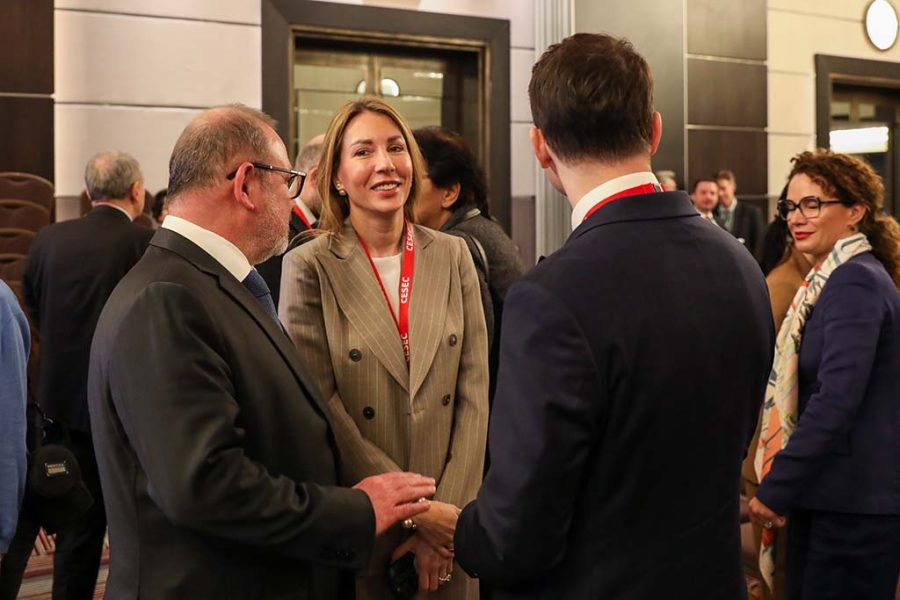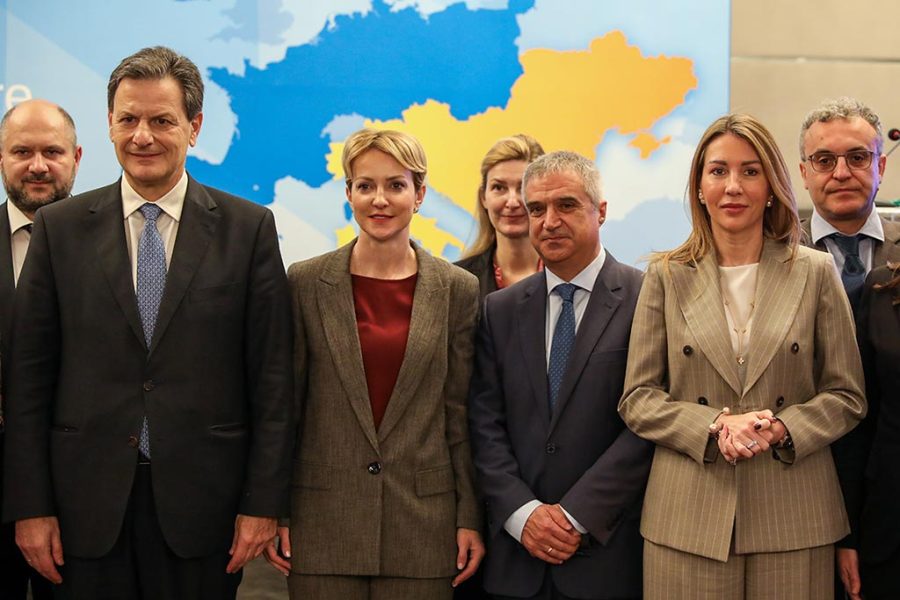At a high-level ministerial meeting of the Central and Southeast European Energy Connectivity (CESEC) group in Athens, Serbia, represented by the Minister of Mining and Energy Dubravka Đedović Handanović, reaffirmed its commitment to continue enhancing energy sector connections with neighboring countries.
This commitment, as stated by Đedović Handanović, is crucial for heightened energy security and further advancement in the energy field.
During the CESEC meeting, the Minister highlighted that the energy security of the Western Balkans is intrinsically linked to the energy security of Europe. The emphasis was on the importance of better connectivity for increased supply security through energy infrastructure development and the transformation of the electricity sector, a priority in the energy transition.

For Serbia, Đedović Handanović discussed the construction of reversible hydroelectric plants, particularly the RHE Bistrica, and the intention to strengthen connections with Romania, including the expansion of hydroelectric capacities at Đerdap and the prospective construction of the new Đerdap 3 reversible hydroelectric plant.
“Regional connectivity is crucial for integrating new capacities from renewable energy sources more easily and swiftly into the grid,” the minister stated. Following the Serbia-Bulgaria gas interconnection, efforts will be made to connect with North Macedonia and Romania, providing additional gas sources in times of need. In the oil sector, the priority is constructing a new pipeline between Serbia and Hungary.
The Minister also mentioned hydrogen as a future energy source, with Serbia preparing through regulatory development and discussions about hydrogen production in the industrial sector.
Serbia’s leadership in green energy transition within the Energy Community was recognized, citing progress in decarbonization and reforms in the energy sector over the past year.
Regarding the CESEC meeting in Athens, discussions focused on evaluating the successful implementation of priority infrastructure projects, market integration policies, and actions. Future priorities were reaffirmed, focusing on expanding cooperation on renewable energy sources and integrating renewable and low-carbon gases, particularly hydrogen and biomethane.

Draft ministerial conclusions and two Action Plans (Electricity Action Plan and Gas Action Plan) were adopted. Moreover, Greece and Bulgaria signed a memorandum to expand energy cooperation, encompassing electricity, natural gas, renewable energy sources, and hydrogen.
Ministers discussed CESEC achievements in electricity market integration and interconnections and the challenges posed by the war in Ukraine and dependence on Russian gas.
The future vision for hydrogen and renewable fuel infrastructure in the region was outlined through the CESEC Action Plan on Gases. The meeting reaffirmed CESEC’s commitment to transitioning the region to carbon neutrality and achieving energy and climate policy goals.
European Commissioner for Energy Kadri Simson underscored significant energy infrastructures completed in recent years, including the liquefied natural gas terminal in Alexandroupolis, strengthening the region’s access to international markets.
The EU Commissioner’s main priorities are accelerating renewable energy development, building new networks, and integrating markets for diversified sources and enhanced supply security.
CESEC, founded in February 2015 by Austria, Bulgaria, Croatia, Greece, Hungary, Italy, Romania, Slovakia, Slovenia, and the EU, no longer includes Slovakia since 2021. Later, Ukraine, Moldova, Serbia, North Macedonia, Albania, Bosnia and Herzegovina, Kosovo (in accordance with UN Security Council Resolution 1244 and the ICJ Opinion on Kosovo’s declaration of independence), and Montenegro joined the group.